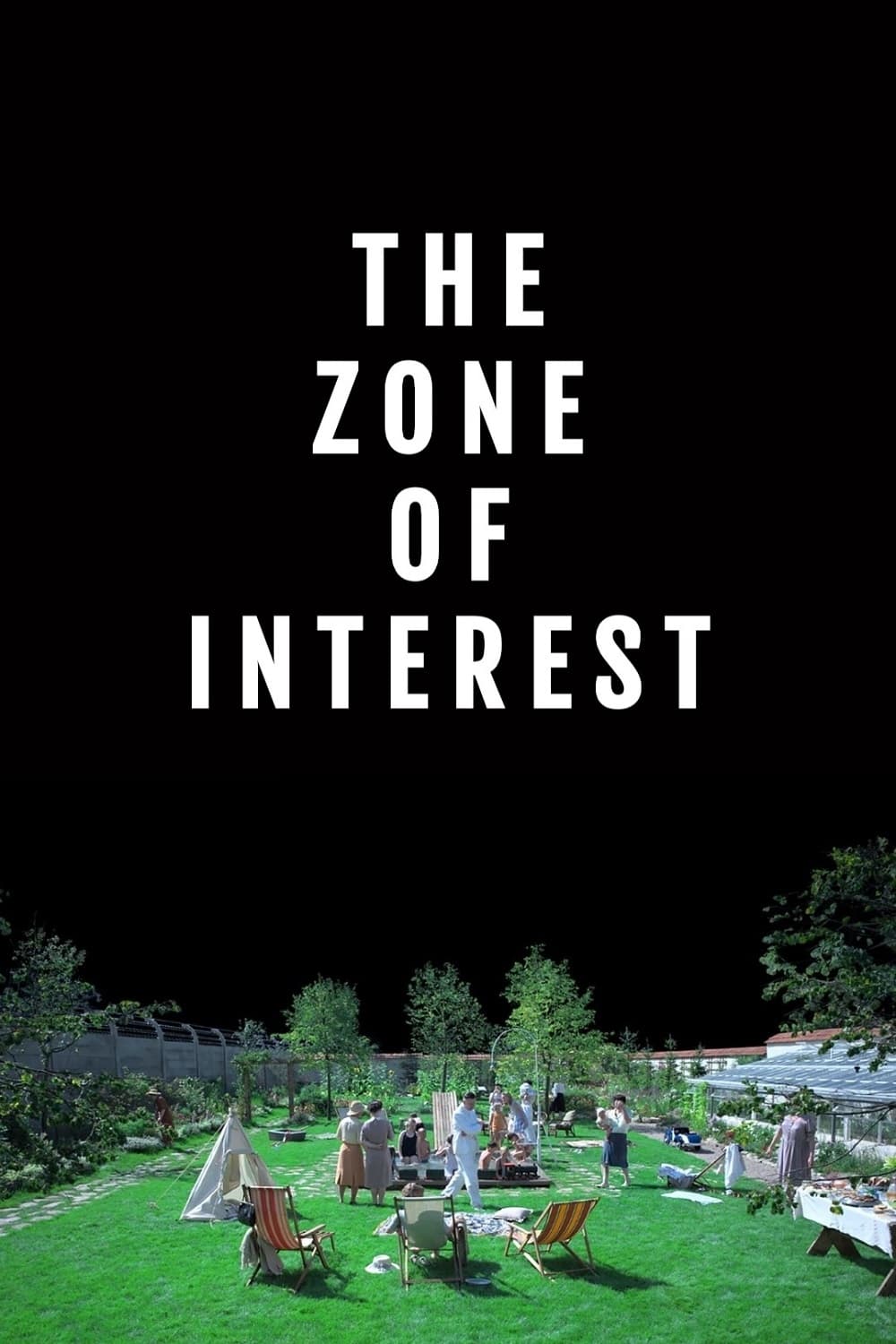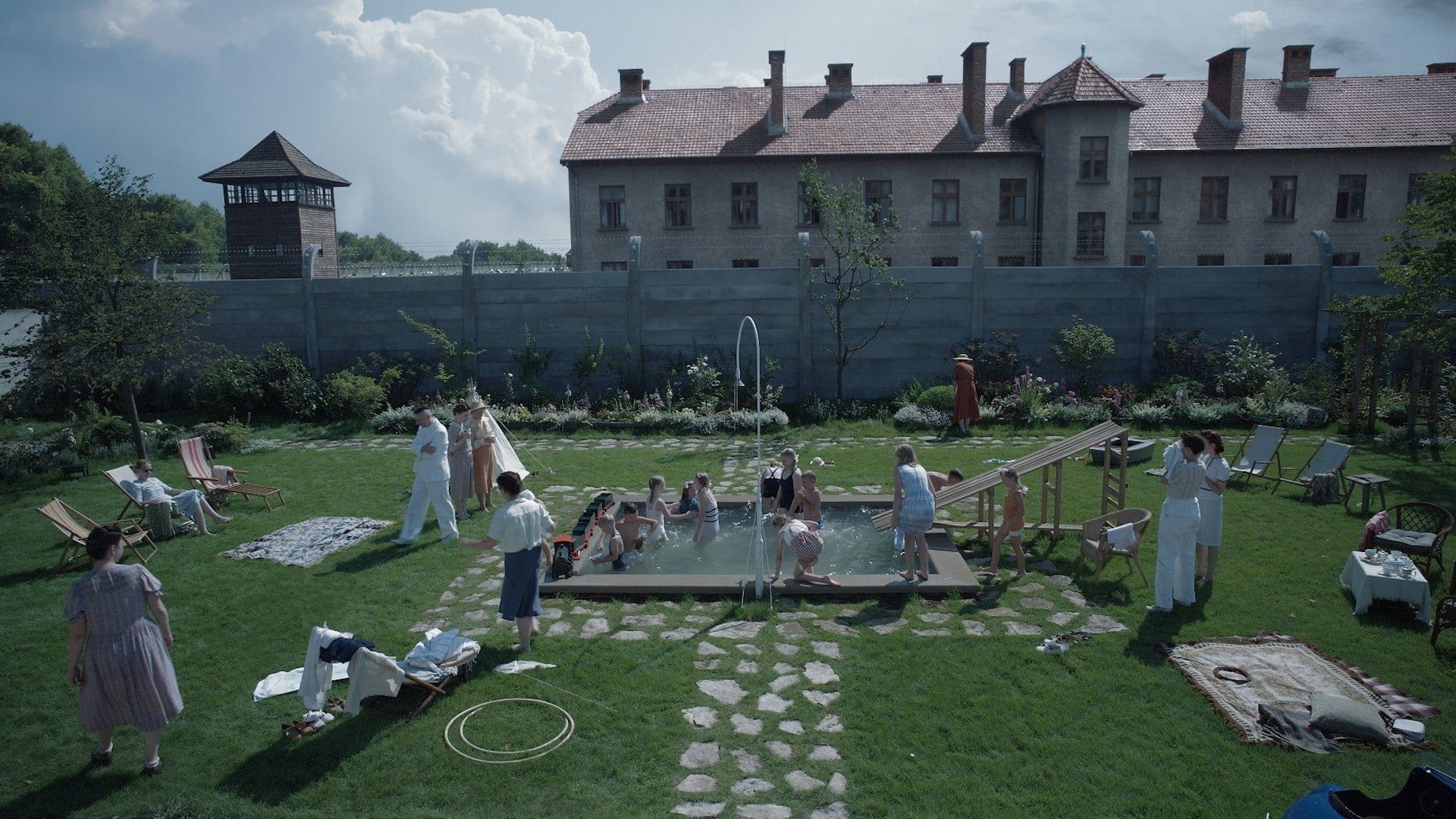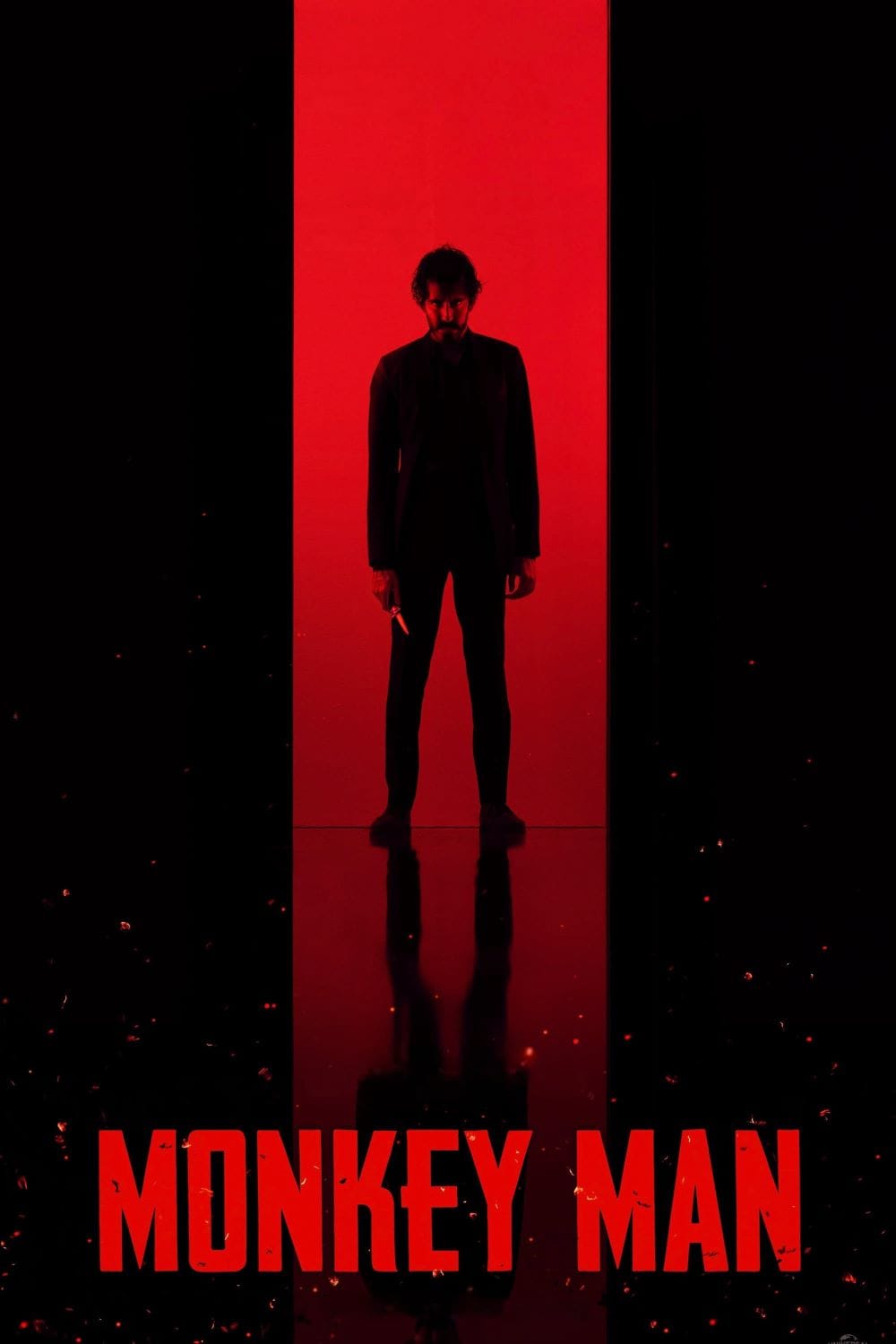The Zone of Interest (2023) | Review
Johnathan Glazer's holocaust art piece is nearly free of drama but loses no impact in its devastating portrayal of the family who live on the other side of the walls of Auschwitz.

Synopsis: Rudulph Höss, the commandant of Auschwitz, lives with his family in a pristine home on the other side of the concentration camp wall. The possibility of Rudulph being promoted for his work threatens the life that his wife, Hedwig, takes pride in.
Director: Johnathan Glazer
Cast: Christian Friedel, Sandra Hüller, Medusa Knopf, Daniel Holzberg, Ralph Herforth
The most unsettling feeling that The Zone of Interest imprints upon you (and it has a sizable field of options to pull from) will hit you hours or, in my case, days after you've watched it: the sheer horribleness of inaction, followed by the uneasy feeling that never before have you been compared so fairly to a Nazi.
Johnathan Glazer's new film parks you just outside everything you fear and follows the lives of the Höss family, living in a prim and proper home next to the Auschwitz concentration camp. There's very little story to push and actors play their parts with a neutral naturalness that makes the film akin to a museum experience. No one is coming to deliver justice and nothing is going to jolt the story with excitement. It's just another day living on the edge of the worst place in the world.
SANDER: In each case, the chamber directly opposite the fire zone, which is burning at around a thousand degrees, has by now cooled to around forty degrees. Cool enough to unload the ash then reload pieces.
RUDOLF: So these chambers are cooling and these are heating up.
SANDER: Correct. The process moves one chamber over, counterclockwise. Burn, cool, unload, reload.
PRUFER: Continuously.
Glazer installed cameras around a reconstructed Höss family house and the result is cold but commendable. Cameras watch down long corridors, in the centre of rooms, and surrounding a garden which gives the editing a surveillance-like style. This pushes the film close to Babette Mangolte-level of naturalness and heightens the dramatic choice Glazer made when portraying the atrocities of the concentration camp: there aren't any. Of course, by this I mean there 'technically' aren't any. None are shown and you have as much plausible deniability as the Höss children. Instead, the film is littered with evidence from trains arriving in the far-off sections of the frame to leftover clothes and valuables found in toothpaste. When a grandmother visits she is initially proud of the life he daughter has built and admires her home, but she can't stop turning her head to the noises and can't sleep while her room is illuminated by roaring fires.

The Zone of Interest is death by a thousand cuts, with the biggest strikes coming from the impeccable sound design. Just as the background visuals loom over the idyllic garden of the Höss family, you're always paying attention to the background noise of a scene. Boots march, people shout, guns fire, babies cry, and there's always a grinding mechanical snarl coming from the other side of the wall. In place of a score, you have soundscapes of various intensities. Early on these will unsettle you. At the close, you may be broken into a thousand pieces by its wailing. You're occasionally given a block of colour to stare at during these sounds which are easy targets for detractors of this film, but I found them important pacing to refocus my mind after watching a family prosper.
I could go on but The Zone of Interest is a film to embark upon and draw your own experience from. For me, I'm mortified. As the internet has brought images of human conflict into our own pockets and at the push of a button, we've all been pushed into the zone of interest. Glazer's movie is straightforward and, structurally, free of guilt – the closest we've had to visiting a museum and sensitively remembering the holocaust without venturing into full-blown tragedy or melodrama.
It's easy to say that it's a little too empty, and there was ample time to drive even a slightly stronger narrative or emotional drive from literally any of its characters, but I found it captivating in its approach and slowly devastating in its impact.




